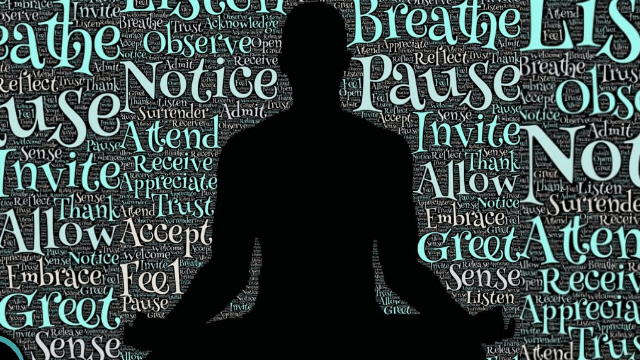Stress is to the body what global warming is to the planet, and just as there are those who can find a way to deny global warming, some of us are good at denying the damage that’s being done when we let stress run amuck in our life.
The bottom line is that way too many of us live with too much stress on a day-to-day basis. This means that we’re taken away from that quiet, still place of calm that we’ve all got in our being.
And many of us go so far down the tunnel of stress that it can feel as if there’s no way back. The good news is that there is a way back, and it simply involves unlearning the things that we’ve learnt through our lives that disconnect us from our core.
We need to go right back to the fundamentals of breathing and pausing regularly throughout the day to re-engage our parasympathetic nervous system that gets overridden when stress takes a hold on us.
The parasympathetic nervous system creates the ideal conditions for our body to stay well, with routine activities like digestion, growth, and repair ticking over nicely, as we go about our business with a slowed heart rate, lowered blood pressure, and a heightened sense of wellbeing and calm.
It’s our sympathetic nervous system that’s in play when we’re in a stressed out hyperactive state.
It gives rise to the classic fight or flight scenario. It raises our blood sugar and heart rate, narrows our blood vessels, and activates our immune system, which enhances our clotting capacity and blunts our pain perception.
Basically the sympathetic nervous system ensures that the heart madly pumps blood to the muscles in order to get energy to where it’s needed as fast as possible in the event of an emergency.
It does this by flooding the body with adrenaline which increases blood flow, and cortisol which increases the level of sugar in our blood.
The problem here is that the stress response activates inflammation in our body because of the processes that go on to mobilise sugar for energy, and it automatically switches off any non-essential activity that could drain the energy stores that are needed to survive the imminent danger it perceives we’re in.
These non-essential activities include things like digestion, growth, and reproduction. Of course there are obvious problems with this given the chronic high levels of stress that many people live with these days.
It’s no good for us at all to have energy diverted away from these processes indefinitely.
Ultimately there’s a maladaptation at play here, because unlike animals who only activate the stress response when there’s clear and present danger, humans not only switch the stress response on in relation to run of the mill non-life threatening circumstances, but also in relation to thoughts, memories, and emotions.
When we consider what’s actually happening in our body when we push the stress button, it’s obvious that we need to get a handle on this if we want to live to a ripe old age and enjoy the journey in the best health possible.
But too many of us lead the kind of stressful live that means we’re chronically experiencing increased blood pressure, which leads to hypertension that sets us up for serious damage to our blood vessels.
This damage includes the build up of plaque, which poses the real risk of the plaques in our vessels breaking off and travelling to our brain in the case of a stroke, or our heart in the case of a heart attack.
What many people experience ongoing is a series of mini stress events. Firstly the stress response results in the fat cells releasing energy, then fat gets stored back in the cells when the perceived danger has passed, and so on throughout the day.
All of this activity is not what our body needs in terms of maintaining the degree of homeostasis required to maintain good health.
The bottom line is that in addition to playing a major role in depression and sleep deprivation, chronic stress also makes the control of blood sugar more difficult.
Type 2 Diabetes is the canary in the coalmine in terms of the modern western diet coupled with the levels of stress many of us live with. And there’s also the fact that we operate from our brain’s limbic system when we’re stressed to consider as well.
The limbic system is all about reflexes and short-term survival. So there’s no higher order thinking or executive decision-making going on when we’re not able to access our brain’s prefrontal cortex because of the way the stress response plays out.
This means that our ability to maintain a healthy perspective on things and problem solve goes out the window when we’re stressed, so there’s another really good reason to develop strategies to manage stress as soon as possible.
Living with chronic stress is like swimming in a rip in the ocean. We’re culturally programmed to value action and staying busy, but action in a rip equates to struggle, and the struggle will wear us out eventually.
On the other hand, if we dive under all of the activity by breathing deeply and bringing our self into the present moment, we’ll sense a point where we can be still feel into our core. That point is the portal that will take us back to calmer waters.
Eating in a way that supports our body, exercising, sleeping well, having a healthy mindset, and pausing between activities during the day, are all behaviours that are going to predispose us to being calmer.
The most precious thing that is always available to help us here is breathing. When we’re relaxed, we tend to breathe slowly and deeply, rather than taking the kind of quick shallow breaths we take when we’re stressed.
Deliberately making time to pause between activities and just breathing deeply will make an almost immediate difference to the quality of your life.
Simply focusing on your breath and slowing it down sets up a feedback mechanism that tells your body and your mind that everything’s okay.
That way your body won’t be on standby for an emergency with the sympathetic nervous system engaged or semi engaged all of the time.
At the end of the day it’s in everybody’s interest to cultivate as many self-care and coping strategies as we can.
It’s all about noticing the things that we are already doing that help us to relax and cope with life’s ups and downs without using our stress response as a default strategy, and doing more of those kinds of things.
Breathing mindfully, journaling, meditating, exercising, taking a long hot bath, talking concerns over with friends, are all examples of effective coping strategies that I urge you to nourish yourself with.
These kinds of activities, backed up by an attitude of self-care will slowly but surely reprogram your brain and your body to have a much more healthful response to any stress you’re exposed to, and more importantly, to replace your sympathetic nervous system with your parasympathetic nervous system as your default setting so that you don’t generate unnecessary stress for yourself.
The great irony here is that we are our own worst enemy in relation to ramping up our stress levels with mindset patterns like perfectionism and overthinking.
I’ll be writing on mindset in my next article. There’s a lot that can be done to improve the quality of our life by become aware of and taking action on issues around mindset.
But for now, let’s collectively bring down the amount of stress in the world – one breath at a time.
You can find much more information on living a holistic lifestyle in these free magazines and on our YouTube channel.
 Jane Turner – Woman’s Health Expert
Jane Turner – Woman’s Health Expert






